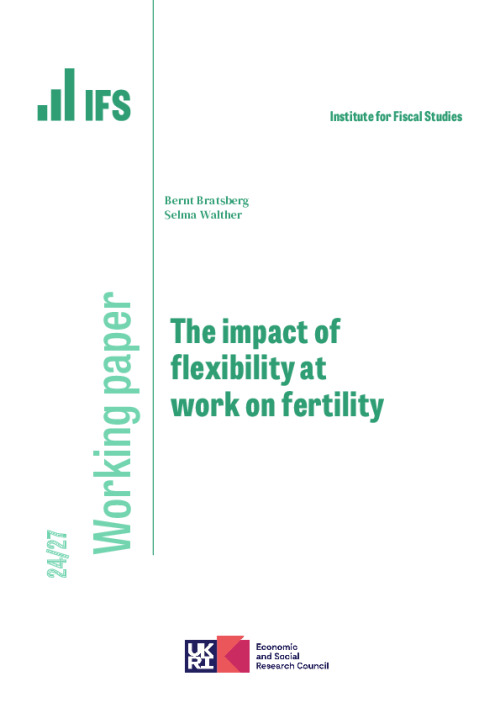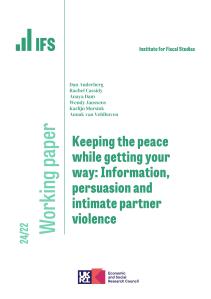Downloads

Download working paper here
PDF | 818.48 KB
Leveraging the first Covid-19 lockdown in Norway as a laboratory for an increase in work flexibility, we uncover a significant and persistent increase in births nine months later. Using the Goldin (2014) measure of work flexibility based on occupation characteristics, we show that fertility increases were concentrated among women in “greedy jobs” with lower flexibility prior to lockdown. We formalise and develop the intuition of Goldin (2014) in a theoretical model where greedy work and greedy children place similar demands on a woman’s time. The model explains the mechanism by which an increase in flexibility boosts the fertility of higher earning women, and shows it unfolds under relatively simple theoretical assumptions. The increase in work flexibility under Covid-19 lockdown allowed high-earning women in greedy jobs to alleviate the career-family trade-off.
Authors

Senior Research Fellow Norwegian Institute of Public Health
Research Associate University of Sussex
Selma is a Senior Lecturer (Associate Professor with tenure) at the Department of Economics, University of Sussex, and a Research Associate at IFS.
Working Paper details
- DOI
- 10.1920/wp.ifs.2024.2724
- Publisher
- Institute for Fiscal Studies
Suggested citation
Bratsberg, B and Walther, S. (2024). The impact of flexibility at work on fertility. 24/27. London: Institute for Fiscal Studies. Available at: https://ifs.org.uk/publications/impact-flexibility-work-fertility (accessed: 29 June 2024).
More from IFS
Understand this issue

How did parents’ experiences in the labour market shape children’s social and emotional development during the pandemic?
1 August 2023

Work from home: what does the future look like?
24 May 2023

Disability, illness and pain are real problems for the entire economy
28 August 2023
Policy analysis

How have the size and shape of the UK state changed?
9 June 2024

Size of the state has grown over this parliament and is likely to remain permanently bigger than pre-pandemic
9 June 2024

Making mortgage guarantees permanent will help some first-time buyers, but only if they can afford a bigger mortgage
6 June 2024
Academic research

The intergenerational elasticity of earnings: Exploring the mechanisms
3 June 2024

Targeting men, women or both to reduce child marriage
28 May 2024

Keeping the peace whilst getting your way: Information, persuasion and intimate partner violence
17 May 2024